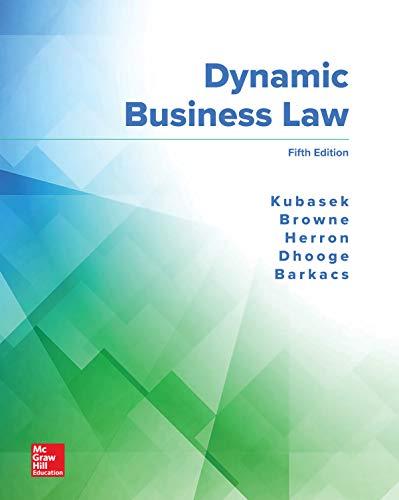In 2006, Kenneth and Carol McLeod borrowed $771,000 and secured the loan with a deed of trust
Question:
In 2006, Kenneth and Carol McLeod borrowed $771,000 and secured the loan with a deed of trust on their Arizona home. The deed of trust was held along with others in a trust created to hold such security interests. Deutsche Bank National Trust Company was the trustee of the trust that the McLeod’s deed of trust was held by.
In 2008, the McLeods had defaulted on the loan and were notified of a trustee’s sale set for August of that year. The McLeods sued to enjoin the sale and while the sale was halted, the suit continued for many years. The McLeods originally named ten defendants, including Deutsche Bank. Relevant to this case, the McLeods did not name defendant Deutsche Bank in its capacity as a trustee.
By 2014, Deutsche Bank was the only remaining defendant in the case. Deutsche Bank argued that its only relation to the McLeods was as a trustee of the trust that held their deed of trust. Although the court recaptioned the remaining defendant in this case “Deutsche Bank as Trustee,” it ruled that a default judgement in 2008 against another defendant similarly enjoined Deutsche Bank from foreclosing the property. Deutsche Bank appealed.
Deutsche Bank argued that the trust that held the McLeods deed of trust was a common law trust, meaning it could not sue nor be sued. The only way to bring an action against the trust, Deutsche Bank argued, was to sue the trust’s trustee. The appellate court vacated the previous judgment and remanded the case back to the lower court. What is the difference between a common law trust and a business trust according to the judge? Why do you think business trust and common law trusts exist separately?
Step by Step Answer:

Dynamic Business Law
ISBN: 9781260247893
5th Edition
Authors: Nancy Kubasek, M. Neil Browne, Daniel Herron, Lucien Dhooge, Linda Barkacs





